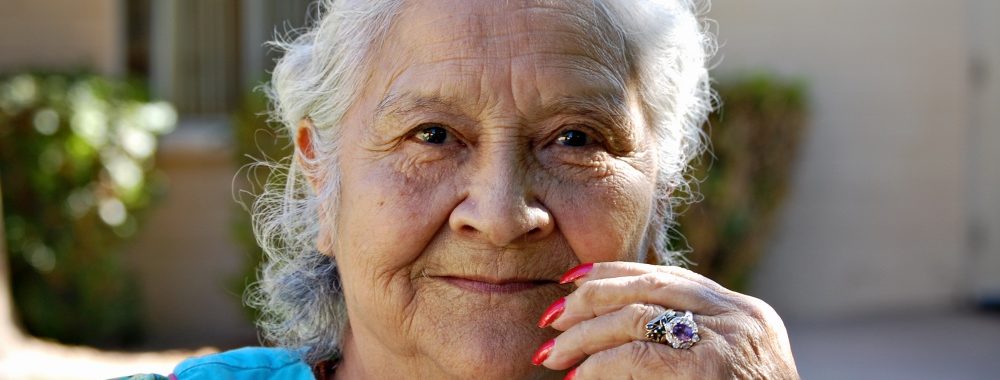As we age, the inevitable happens. Friends and relatives pass away. Social circles become smaller. Married couples lose a spouse. Physical limitations limit activities when an aging adult can no longer drive, has mobility issues, hearing difficulties, or trouble following a conversation. Anyone of these scenarios can leave an older adult feeling very lonely and socially isolated.
Through this post, we’ll explain the health risks and offer:
Loneliness Effects Physical and Mental Health
Being lonely can take a mental and physical toll on health.
Senior isolation can have devastating effects physically, emotionally, and mentally. The British have recognized a loneliness epidemic among their elderly population for years—coined the silent killer. They have launched intense ad campaigns and outreach programs to connect with the forgotten.
Health Risks
The U.K. even appointed a Minister of Loneliness. Research shows that loneliness has a negative effect comparable to chronic stress. Increased stress hormones can raise a senior’s risk for a stroke, heart attack, dementia, and premature mortality. Lonely seniors, not surprisingly, suffer from a higher rate of depression.
As a result, some seniors report engaging in risky behaviors like a poor diet, smoking, or drinking in excess. And lonely people have weaker immune systems. According to Dr. John Cacioppo, a neuroscientist who has studied social isolation for the past 30 years, feelings of loneliness are linked to poor cognitive performance, cognitive decline, and a higher risk of dementia.
Statistics on Loneliness in the U.S.
In recent years, the U.S. government has begun to explore the effects of senior isolation and loneliness. Research finds that loneliness is a growing epidemic with higher health risks than obesity and as damaging as smoking 15 cigarettes a day. Research also shows, even though technology enables us to be one-click or call away from connecting with a loved one, that as a society, we are lonelier than ever.
Study Sponsored by the AARP
- More than 1/3 of seniors in the poll said they felt a lack of companionship at least some of the time
- 27% said they sometimes or often felt isolated, with 28% reporting fair or poor physical health
- 17% of people who called themselves socially isolated rated their mental health as fair or poor
Additional Statistics
- Of those 65+ years old, 18% live alone, and 43% reported feeling lonely regularly.
- Older women are twice as likely to live alone than aged men because women’s life expectancy is longer. By age 75, about 45% of women live alone.
- 1 out of 7 people with Alzheimer’s live alone, and loneliness is linked to a 40% increase in seniors developing dementia.
- Among the LGBTQ community, seniors are twice as likely to live alone.
- An estimated 6 million Americans age 65+ have a disability and cannot leave their homes without assistance.
- And surprisingly, senior caregivers report being among the loneliest. They have less time and energy to develop their social network.
Those living alone are more likely poor, and many isolated older people do not prepare full balanced meals. According to the Milken Institute:
- Eight of 10 low-income, food-insecure seniors, were not receiving the meals they needed. Amidst COVID-19, four out of five Meals on Wheels programs report that requests for meals have at least doubled.
- Amid the pandemic, new requests for Meals on Wheels have increased by 74 percent, and previously existing waiting lists have grown by 26 percent.
What Does Senior Isolation Feel Like?
In the Facebook Elder Orphan group, thousands of seniors discuss the challenges of living alone. Senior isolation is often discussed, but what does it FEEL like? These are real quotes from real seniors living alone:

“I was outgoing and funny and helpful, and now I barely go beyond the walls of my house.”
“I do think about the fact that no one is concerned if I’m not seen for days, mostly for the sake of my cats.”
“I do have family but still feel lost and alone most of the time as they have lives of their own.”
“When I am home alone, I love it; other times, I feel really lonely, and my lack of close friends really hurts.”
“Somewhere along the line, I went from a gregarious extrovert to being lonely. Keeping the balls in the air is all I seem to do.”
How You Can Help
There are many ways that you can help now, as well as after the pandemic passes.
Donate Money
You may have time to volunteer, or you’re prevented from doing so during COVID-19, but still want to help seniors in your community. An excellent way to help is to donate money to an organization that helps aging adults like the Council on Aging of Central Oregon.
Visit With the Elderly
Rather than formally volunteering for an organization, volunteer to help those individuals, you know. Many aging adults experience loneliness or simply want to share their experiences in life. Taking some time to visit via Zoom or Facebook (if possible) with an older family member, friend, or neighbor. Even a socially distanced walk around the neighborhood is a valuable way to spend time with a lonely or isolated older adult.
Bring Meals
Many older adults do not get proper nutrition and develop malnutrition. One way to lend a hand to aging loved ones, friends, and neighbors is to cook them a meal or meals that they can enjoy. This not only helps the person get proper nutrition and brings them joy but may also help financially.
Help Out Around the House
Many seniors continue to live at home as they age. They may need a handyman to help around the house cleaning, fixing little things, gardening, raking leaves, and shoveling the driveway in winter.
Drive Older Adults as Needed
Some seniors no longer have the ability to drive. Taking an elderly individual to appointments, shopping, or just to take in local sights can help them get much-needed services, leave the house, and have a bit of company and enjoyment.
If it’s possible to do so safely, schedule a set time every week to drive a senior to places they need. Or, offer to run errands if this person is unable to leave the house or a senior living community. They may need prescriptions, groceries, or just want a meal from a local restaurant.
Nationwide Resources for Isolated Seniors
- Elder Orphan Facebook Group – A Facebook group for Americans living alone with no close family support. Thousands of group members ask questions, share ideas, and interact with others.
- #AgingVoices – A twitter hashtag campaign that shares stories, news, and resources for the senior population.
- SeniorCare.com Senior Guides – Over 8000 local senior guides offer healthcare quality ratings, top housing options, and other resources for aging Americans.
- Connect2Affect – The AARP Foundation spearheaded Connect2Affect to seek solutions to senior isolation. The goal is to create a network of resources that meets the needs of anyone isolated or lonely. That helps build the social connections that older adults need to thrive
- National Association of Area Agencies on Aging– The National Association of Area Agencies on Aging. The local AAAs provide aging and disability resources to the communities they serve.
- NCOA.org – Energy Assistance | Benefits – The National Council on Aging several benefits programs can help with energy assistance needs
Current News
Check out these news articles and resources on aging alone and isolation.
Aging Alone
- Elder Orphans Have a Harder Time Aging in Place – NextAvenue
- Needs of ‘Elder Orphans’ a Growing Concern in Aging Population – HealthCentral
Health Care
Living Alone Concerns
Long-Term Care Planning
- Transforming Life as We Age
- Who will care for the aging, childless, and single population? Huffington Post


